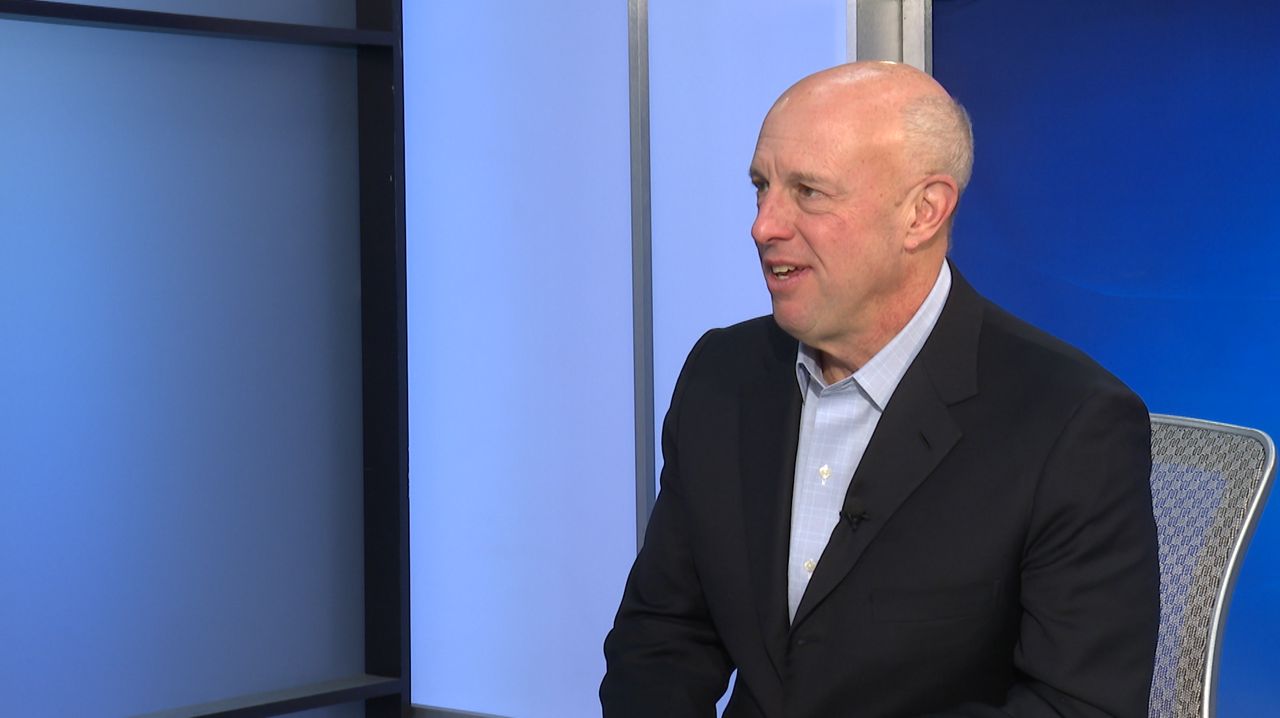DUDLEY, Mass. - The Nichols College provost said recent stock market swings are indicating an expected decline in profitability and productivity of businesses; largely because of uncertainty.
What You Need To Know
- Nichols College provost, Daniel Borgia, Ph.D, sat down with Spectrum News 1 to discuss recently imposed tariffs. Borgia is a former China Fulbright Scholar and has written extensively on international business and finance with reference to China, working capital financing, entrepreneurial finance, and financial education
- China raised tariffs on U.S. imports to 125% on Friday
- China's move comes shortly after the White House announced a 145% tax on all imports from China but paused a majority of the proposed tariffs on other countries for 90 days
- The White House said the goal is for tariffs to bring production back to the United States
“The tariffs have changed; the rates have changed," Daniel Borgia said. "And, you know, the rates are different depending on country. And so, there's a lot of uncertainty in the market.”
Daniel Borgia, Ph.D has written extensively on international business and finance with reference to China. Spectrum News 1 asked him when tariffs can be useful for the economy.
“Tariffs can be used strategically," Borgia said, "to for example, protect new emerging industries in a particular country.”
Borgia gave the hypothetical of the U.S. putting a tariff on solar panels, a product largely made in China, to help develop America’s own solar panel industry.
He also said the high tariff on China could be due to a different reason.
“There's a perception by a lot of folks that, China doesn't practice fair trade. And so, you could use tariffs to penalize a country," Borgia said. "And I think that's why President Trump has left the higher rate on China for now. I think, his motivation is to try to negotiate lower tariffs for both countries. But, at this point, it seems like China is not going to back down.”
And soon Americans will see the economic effects.
“If you're a small business person that has an Amazon store and you get your product from China and the product cost $100 last year in 2024," Borgia said, "with 145% tariffs, you're going to have to pay $245 for the same product.”
Borgia said higher costs get passed to consumers and could end up dampening spending by both individuals and companies.
“I don't think anything's really clear at this point, but that is what the expectations are," Borgia said. "And if you look at the consensus view of economists, they're expecting a slowdown in economic activity or potentially a recession. Some put it as high as 60% or more.”
While time will tell what the market holds, Borgia said right now it looks challenging.
“In general, the tariffs and the changes in tariff rates have caused a lot of uncertainty and that has impacted, consumer sentiment, business sentiment, investment intentions," Borgia said. "So, it's been, so it's a little bit, you know, it's a little bit of a scary time for a lot of folks in business and consumers as well.”








